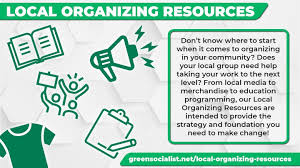The Power of Activism: Making a Difference in Our World
Activism is the driving force behind positive change in our society. It is the collective effort of individuals and groups who are dedicated to advocating for social, political, environmental, or economic reforms. Activists are passionate individuals who believe in the power of their voices and actions to bring about meaningful transformations.
One of the key aspects of activism is raising awareness about important issues that impact our communities. Activists use various platforms such as protests, rallies, social media campaigns, and community events to shed light on injustices and advocate for solutions. By speaking out and mobilizing others, activists can amplify their message and push for change.
Activism comes in many forms, from grassroots movements fighting for civil rights to environmental activists advocating for sustainability and conservation. Each cause is driven by a deep sense of purpose and a commitment to creating a more equitable and just world for all.
While activism can be challenging and often met with resistance, history has shown that it has the power to spark significant societal shifts. From the civil rights movement to the women’s suffrage movement, activism has played a crucial role in dismantling oppressive systems and advancing progress.
It is important for individuals to recognize their own potential as agents of change through activism. By getting involved, whether through volunteering, donating, or raising awareness, everyone has the ability to make a difference in their community and beyond.
Ultimately, activism is about standing up for what you believe in and working towards a better future for all. It requires courage, resilience, and determination to challenge the status quo and push boundaries. Together, through collective action and solidarity, we can create a more just and inclusive world for generations to come.
Exploring the Power of Change: A Guide to Understanding and Engaging in Activism
- What is activism?
- Why is activism important?
- What are the different types of activism?
- How can I get involved in activism?
- What impact can activism have on society?
- What are some successful examples of activism?
- How can I stay safe while participating in activist activities?
What is activism?
Activism encompasses the dedicated efforts of individuals and groups who advocate for social, political, environmental, or economic change. It involves raising awareness about pressing issues through various means such as protests, campaigns, and community engagement. Activists are driven by a strong sense of purpose and a belief in the power of collective action to bring about positive transformations in society. By standing up for what they believe in and mobilizing others to join their cause, activists play a crucial role in challenging injustices and striving for a more equitable and inclusive world.
Why is activism important?
Activism is important because it serves as a catalyst for social change and progress. By raising awareness, advocating for marginalized communities, and challenging oppressive systems, activism plays a vital role in addressing injustices and promoting equality. Activists bring attention to pressing issues that may otherwise be overlooked, sparking conversations and inspiring action. Through their dedication and passion, activists push boundaries, hold institutions accountable, and drive positive transformations in society. Ultimately, activism empowers individuals to make their voices heard and actively participate in shaping a more equitable and inclusive world for all.
What are the different types of activism?
There are various types of activism that individuals and groups engage in to advocate for social change and address pressing issues in society. Some common forms of activism include grassroots activism, which involves community organizing and mobilization at the local level; political activism, where individuals work within the political system to influence policy and decision-making; environmental activism, focused on promoting sustainability and protecting the environment; online activism, utilizing digital platforms for advocacy and awareness-raising; and direct action activism, involving protests, demonstrations, and civil disobedience to bring attention to specific causes. Each type of activism plays a unique role in driving progress and creating positive impact in communities around the world.
How can I get involved in activism?
To get involved in activism, there are various avenues you can explore. One way is to research and identify causes that resonate with you personally. Whether it’s social justice, environmental sustainability, or human rights, finding a cause that aligns with your values is key. You can then seek out local activist groups or organizations dedicated to that cause and inquire about volunteer opportunities or events where you can participate. Additionally, utilizing social media platforms to raise awareness, signing petitions, attending rallies or protests, and engaging in discussions with like-minded individuals are all impactful ways to start your journey as an activist. Remember, every action counts towards creating positive change in the world.
What impact can activism have on society?
Activism has the power to have a profound impact on society by sparking positive change, raising awareness about important issues, and driving progress towards a more equitable and just world. Through activism, individuals and groups can challenge oppressive systems, advocate for marginalized communities, and push for policy reforms that benefit society as a whole. By mobilizing people around shared values and goals, activism has the potential to create lasting social, political, and cultural transformations that shape the future for generations to come.
What are some successful examples of activism?
Numerous successful examples of activism throughout history demonstrate the profound impact that dedicated individuals and groups can have on society. The civil rights movement in the United States, led by figures like Martin Luther King Jr. and Rosa Parks, fought against racial segregation and discrimination, ultimately leading to landmark legislation such as the Civil Rights Act of 1964. The environmental activism of organizations like Greenpeace has raised awareness about pressing ecological issues and influenced policies to protect the planet. More recently, the #MeToo movement has empowered survivors of sexual harassment and assault to speak out, sparking a global conversation about gender equality and accountability. These examples highlight the power of activism in driving meaningful change and inspiring future generations to stand up for justice and equality.
How can I stay safe while participating in activist activities?
Participating in activist activities is a powerful way to make your voice heard and drive positive change in society. However, ensuring your safety during these activities is crucial. To stay safe while engaging in activism, consider attending organized events with trusted groups, familiarize yourself with local laws and regulations, have a communication plan with friends or allies, stay aware of your surroundings, and prioritize self-care and well-being. It’s also important to know your rights as an activist and be prepared for unexpected situations by carrying essentials like identification, emergency contacts, and necessary supplies. By taking proactive measures and staying informed, you can effectively advocate for your causes while prioritizing your safety.



